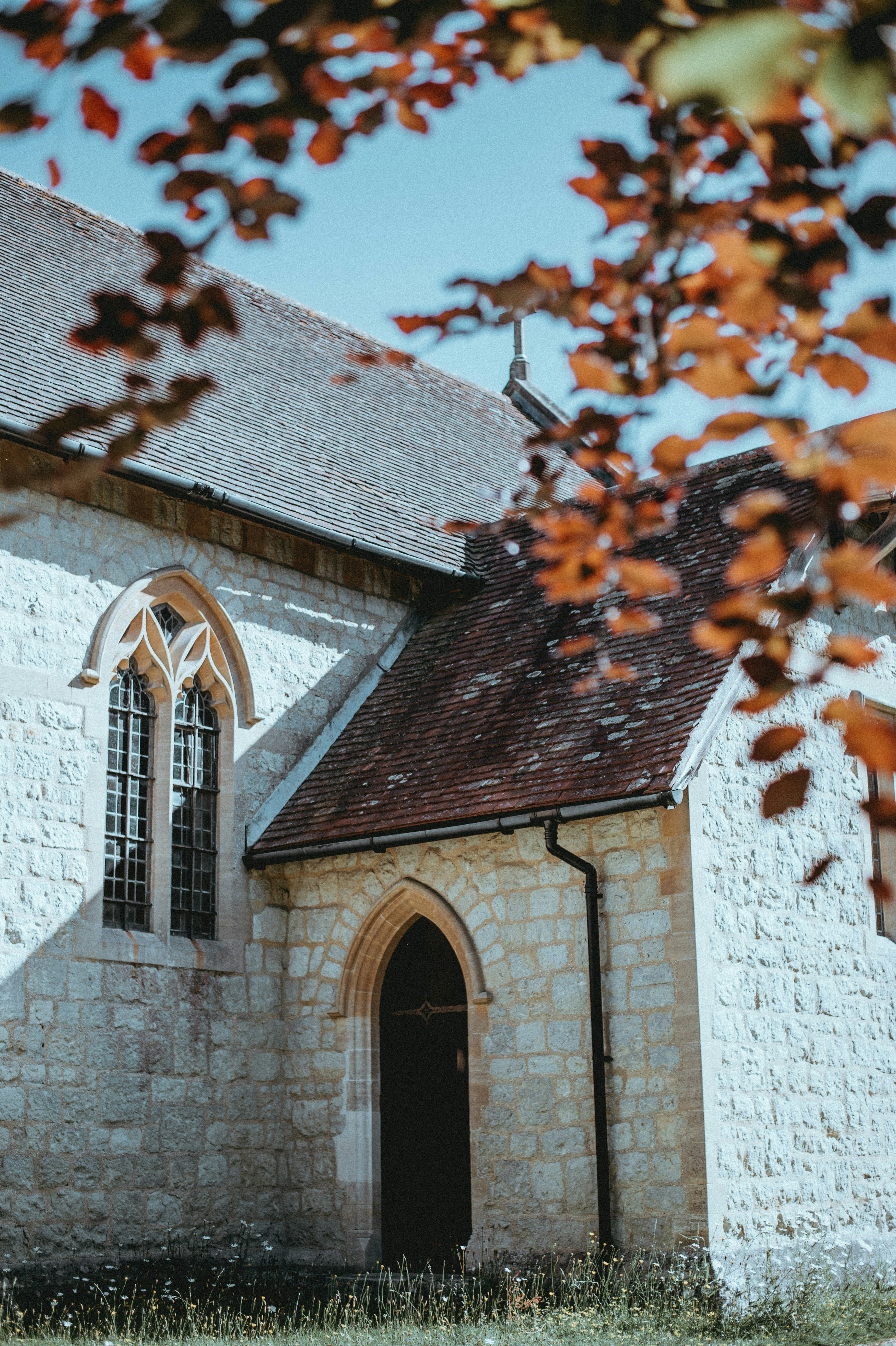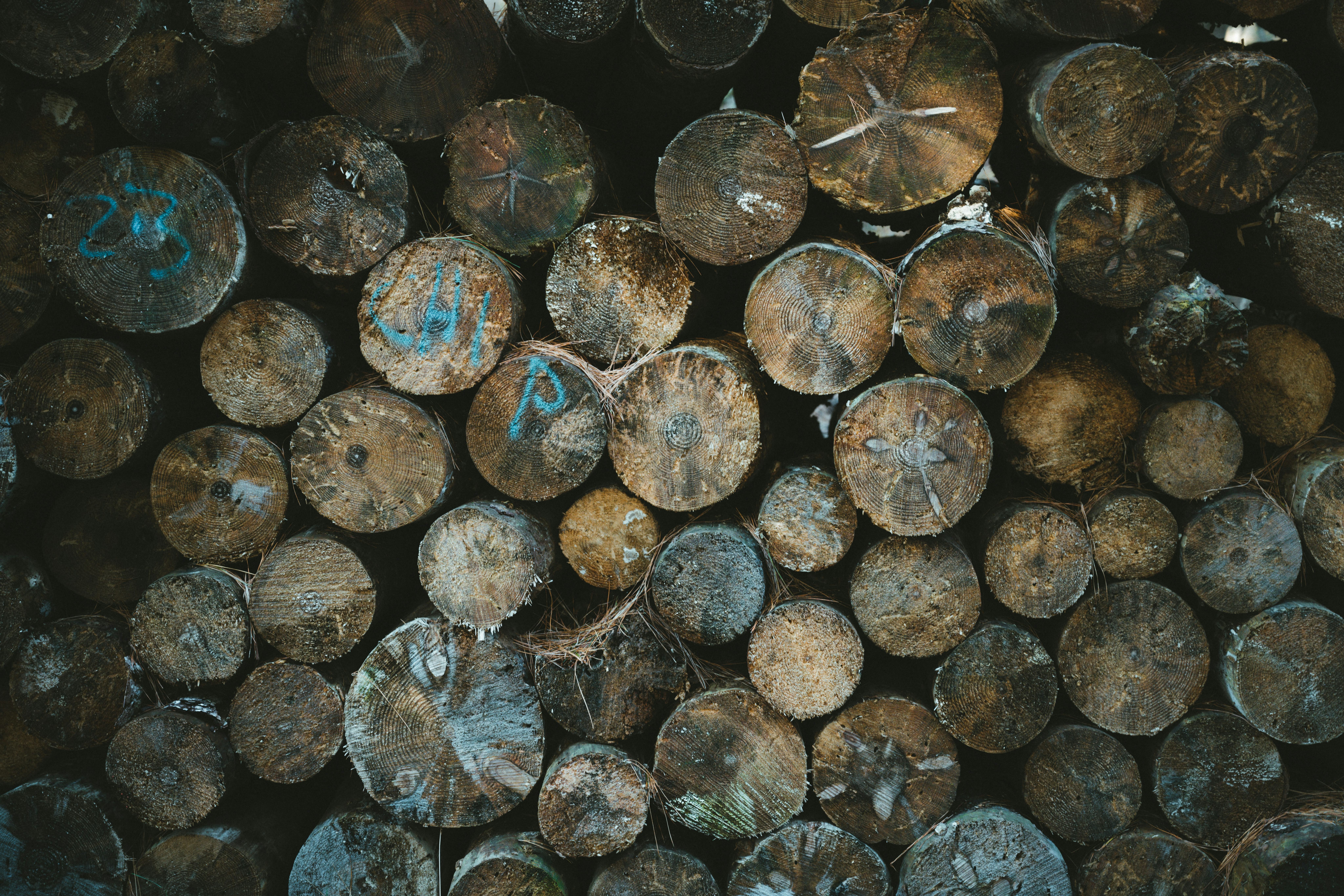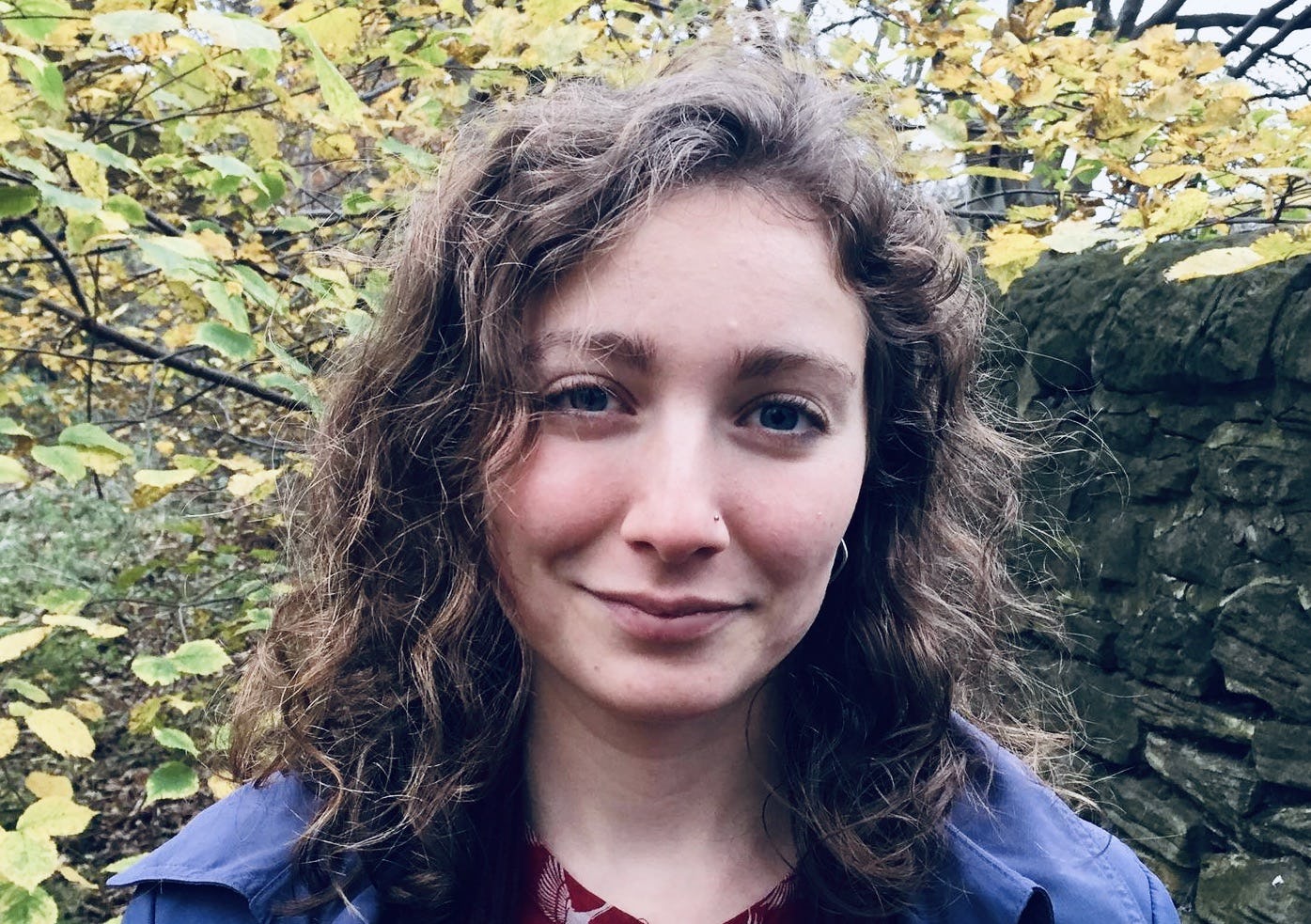During the pandemic, the church where I serve as Associate Pastor has been worshipping outside. Instead of joining together for worship in our historic meetinghouse on the local town green, we meet on the grounds of a local YMCA camp. When the weather is good, we worship in a large amphitheater overlooking a pond. The large trees provide a canopy over the benches. If it is raining, we meet under a pavilion, safe from the weather under cover, but with open walls on three sides, so still very connected to nature.
This time of worshipping outside, with some protection from the elements, has brought me closer to nature. Occasionally, honking geese or bugs flying disrupt worship. More often, nature presents itself as an opportunity to wonder at the miracle of God’s incredible creation. There have been moments that take my breath away. Leaves changing color in the fall. A mist forming over the pond on a cool morning. Even on the hottest summer days, when I am dripping sweat at the end of church, I try to remain grateful for the safe way we have been able to gather together to worship God in the midst of this on-going COVID-19 pandemic.
Worshipping outside for an extended period of time has been an invitation to be surprised by natural elements we cannot control. I never imagined how much time I would spend looking at the weather forecast to determine where we would set up each Sunday morning. Time in nature also forced me to begin to grapple with the ways in which our planet is already warming and how the “traditional” New England climate is beginning to shift.
In the midst of these joys and sorrows, I turn to scripture. Psalm 23 can be a powerful reading to consider faith and caring for creation.
This wonderful Psalm is comforting and familiar, filled with imagery of nature.
The psalmist is writing about God present in something they have likely experienced themselves - a shepherd tending their flock. This psalm is attributed to King David, which could mean that it was written by him, but also could mean it was written by another person in honor or memory of King David. Before David was King he was a shepherd, tending to his family’s flock.
Being a good shepherd in ancient Israel was not easy work. The Psalm describes the shepherd caring for the sheep by leading them to green pastures, but the setting isn’t exactly abundant lush green “the hills are alive” landscape. Being a good shepherd would mean learning from older shepherds who came before you, where are those green pastures? Or it might mean scouting the land yourself, walking many miles, to find a good place for the sheep to graze. The same goes for the still waters. Sheep need a safe place to drink, which means finding a reliable water source, not something that will dry up in the desert climate or rushing waters where the sheep could get caught in the current. A shepherd in ancient Israel wouldn’t have been able to plot out a path on Google Maps and search for “good water stops,” checking the latest reviews or searching for photos.
The images in the Psalm describe a care for and attention to the Earth, something we have become separated from in the present day.
Connection to the Earth was a theme in a New York Times Opinion piece that captivated my attention in the spring of 2021. Jeff Opperman, a conservation scientist, wrote an opinion piece titled, “Taylor Swift is Singing Us Back to Nature.”[1] I can admit, I clicked on it based on the headline. I am a big fan of Taylor Swift, otherwise known as a “Swiftie.” Opperman, however, acknowledges in his article that, as a 50-year-oldscientist and dad, he is not the stereotypical Taylor Swift fan. But he shares how he found a sense of comfort in the lyrics of her two albums released in 2020, “Folklore” and “Evermore.”
Opperman writes, “The albums’ lyrics abound with references to nature: ‘running like water,’ ‘Gold was the color of the leaves when I showed you around Centennial Park,’ ‘You’ll poke that bear till her claws come out,’ ‘Long limbs and frozen swims/You’d always go past where our feet could touch.’”
He goes on in the article to include a brief lyric analysis of Swift’s songs compared with other top songs today and finds, “Ms. Swift uses nature-themed words seven times as frequently as the other pop songs do.”
So what does all of this have to do with faith and Psalm 23?
Opperman considers how language, the words we hear, the art we admire, can influence what we care about. Taylor Swift’s music isn’t going to fix climate change. But if it inspires us to reconnect with nature, in a world where we spend so much time instead connecting through screens, this could be one small way to reconnect to God, through time outside, in nature and creation.
In the opening chapters of the Bible in the book of Genesis, a reader will find two different stories of creation. In the first chapter, God creates the heavens and the earth, each day focused on another part of creation. A whole day dedicated to part of creation. And at the end of each day, God declares it is good. God declares all of creation good.
The second chapter in Genesis features the Garden of Eden, and a bit more complicated creation story with Adam and Eve. But in both stories, nature overflows. There is water, plants, fruit, birds, cattle, all living things. Humans are just a small part of creation.
The importance of nature is evident in Psalm 23 too. God is our shepherd who cares for us and leads us to green pastures and still waters. The psalm reminds us that our souls can be restored in nature. In fact, God wants to restore our soul, by guiding us to green pastures and leading us beside still waters.
The fourth verse in Psalm 23 provides the language which I think can help us link this psalm to our present day climate crisis, “Even though I walk through the darkest valley, I fear no evil; for you are with me; your rod and your staff-- they comfort me.”
Some Christians may be more familiar with the King James version which translates “the darkest valley” as “the valley of the shadow of death.”
I think we are in that valley of the shadow of death right now. Many theologians and preachers have been turning to Psalm 23 during the COVID-19 pandemic. A few have even used this psalm to guide us in our care for the environment.
Maybe you have noticed signs of the environment changing in your lifetime? If you enjoy winter sports, like skiing, snowboarding, or snowshoeing, this past winter aside, the last few years have not been good for these activities. I have a friend in New England who had a pond in their backyard growing up. When they were a kid, it always froze over during the winter and they have fond memories of skating on the pond at home as a kid. But now that they have kids of their own, the winters have been so mild that the pond is rarely safe enough to skate on.
Returning to the words of the psalm, “Even though I walk through the valley of the shadow of death, I fear no evil; for you are with me; your rod and your staff-- they comfort me.” This psalm doesn’t ignore the hard things. We will walk through this dark valley, the valley of the shadow of death. Rev. Kent French, a UCC minister in Brookline, Massachusetts, describes the valley of the shadow of death this way, “Death has not yet come, but its shadow lurks over the faithful, creating a sense of darkness, futility, hardship, and despair.”[2] But we do not need to fear. God is with us. And God is guiding us.
The psalmist draws again on the image of a shepherd tending sheep in mentioning the rod and staff. The rod would have been used to defend the sheep against predators and the staff used to guide the sheep. If we imagine how to apply this psalm to our present day climate crisis, the rod recognizes that there are challenges and predators. We are in a difficult position and need to act. We need to take action to confront the climate crisis in a critical window of time. The staff can be used to guide us.
I believe God created this world and entrusted us to care for it. God is not the only one who can act as the shepherd. We can also step into the role of the Good Shepherd.
The final verse of Psalm 23 begins, “Surely goodness and mercy shall follow me all the days of my life…” The Hebrew word translated as “shall follow me” can also be translated as “pursues, chases me down.” God’s goodness is ahead of us, leading us in right paths, and behind us, following us and chasing us down.
Rev. Dr. Gary Simpson, a Baptist pastor in Brooklyn, New York, reminds us, “The goodness of God is in every place before we ever arrive at any particular place. The good things that happen to us along life’s journey do not happen because we have arrived. God’s goodness has already been where we are planning to go. The goodness of God is so present that every direction that we turn to look, wherever we are, we bump into goodness again. It is perhaps egocentric and arrogant to think that goodness follows us. The goodness of God goes ahead of us, clearing out new ground, pulling us to new terrain, lighting a pathway in the dark places of new possibility, opening doors that no one can shut.”[3]
We need God’s goodness. And we need God’s mercy.
As Rev. Dr. Simpson says, “The goodness of God goes ahead of us, clearing out new ground, pulling us to new terrain, lighting a pathway in the dark places of new possibility, opening doors that no one can shut.” God’s goodness is present even in this climate crisis. God is pulling us to new terrain and lighting a pathway in the dark places of new possibility.
In February 2021, Bill Gates published a new book, How to Avoid a Climate Disaster: The Solutions We Have and the Breakthroughs We Need. In a recent interview promoting his book, he makes the case about how urgently we need to take action to avoid a climate disaster, large scale action. Gates said simply, “We need a miracle.”[4] I’m not exactly sure if Bill Gates was talking about a religious type of miracle. I don’t know his own personal connection to faith, although I do know that his ex-wife Melinda Gates has spoken openly about the importance of her Catholic faith. But I found it striking that arguably one of the smartest and most influential people on our planet right now said, “We need a miracle.”
And then, Gates follows that up by saying, “Miracles happen.”
We cannot remain in despair about the climate. As a person of faith, I believe that faith calls us to act. We can pray for a miracle. We can also learn more about the complicated climate crisis. Small things like watching a documentary on Netflix or volunteering at a local park clean up, each of these things are important steps to reconnect with nature and put us on the right path.
Small actions are not all that are needed. In fact, we do need major large-scale changes if we want to avoid climate disaster. Small things can add up to something bigger. Jesus says in the Gospel of Matthew with faith as small as a mustard seed, we can move mountains. Nothing is impossible when we have faith.
When we begin with small changes, we extend the invitation to everyone. And it will take all of us to make a difference. In closing, let’s return to the final verse of Psalm 23, verse 6, “Surely goodness and mercy shall follow me all the days of my life, and I shall dwell in the house of the Lord my whole life long.”
The New Revised Standard Version translates that final phrase as, “my whole life long.” But again, I’m struck by the difference in translation from the King James Version which translates that same phrase as “forever.”
When it comes to our planet and caring for the environment, we have too often been focused on our own lives. “My whole life long.” But what about the lives of children or grandchildren? We need to act now to ensure the health of our planet forever.
God is a good shepherd who leads us to green pastures and still waters. Let us also become good shepherds, caring for our environment so that those who come after us will also be able to lie down in green pastures and will find safe, still waters to drink. And together we can dwell in the house of the Lord forever.
Sources:
[1] “Taylor Swift is Singing us Back to Nature” Jeff Opperman. The New York Times, March 12, 2021. Opinion. https://www.nytimes.com/2021/03/12/opinion/taylor-swift-grammys-nature-lyrics.html
[1] “Fourth Sunday of Easter: Exegetical Perspective” Kent M. French. Feasting on the Word: Year B, Volume 2: Lent Through Eastertide, edited by David L. Bartlett and Barbara Brown Taylor. Westminster John Knox Press, 2008.
[1] “Fourth Sunday of Easter: Pastoral Perspective” Gary V. Simpson. Feasting on the Word: Year B, Volume 2: Lent Through Eastertide, edited by David L. Bartlett and Barbara Brown Taylor. Westminster John Knox Press, 2008.
[1] “Bill Gates: Forget the climate policy tweaks and go for the big stuff” Kelsey Tamborrino. Politico, February 15, 2021. https://www.politico.com/amp/news/2021/02/15/bill-gates-climate-change-468928
Laura Kisthardt is an ordained minister in the United Church of Christ (UCC). She currently serves as the Associate Pastor at First Congregational Church of Southington, Connecticut. Originally from Northeast Ohio, she was raised in the UCC and has been nourished on her faith journey by Ignatian spirituality. Laura often finds God in nature or works of art and has a passion for retreat ministry and contemplative prayer.
Discover more from Laura Kisthardt.









